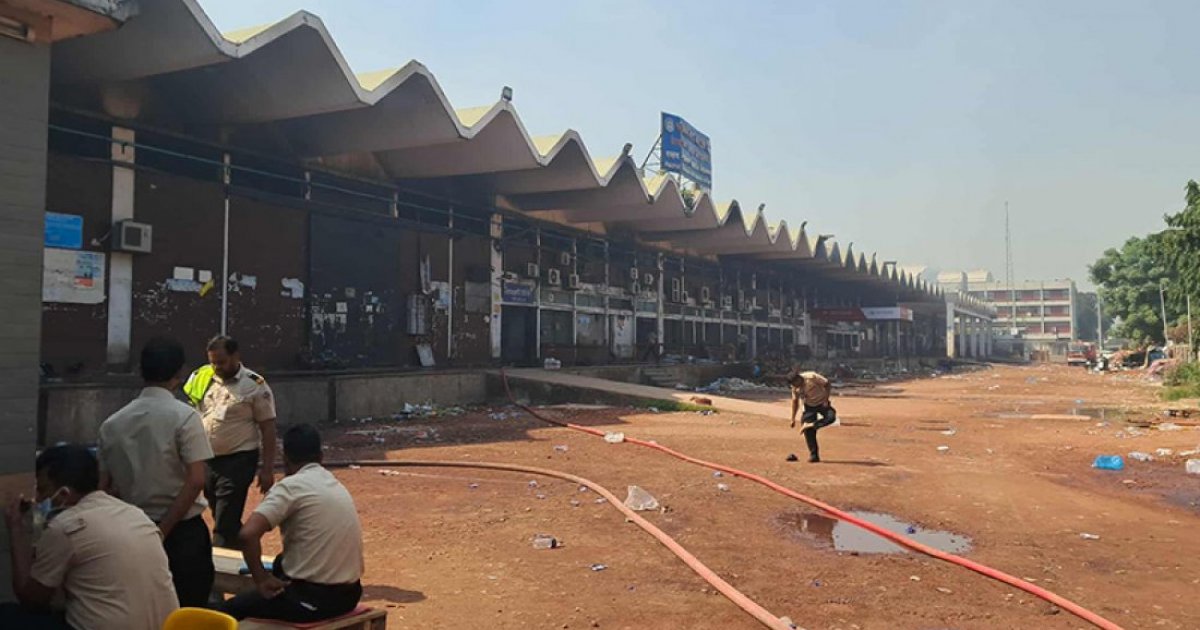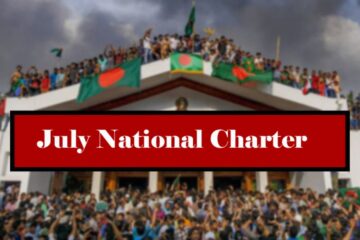The national election will be held next February. The business community believes that only then will the economy regain momentum.
Economists say Bangladesh’s economy is now breathing but cannot walk. Production and growth are trapped in political uncertainty, stagnation in investment, inflationary pressure, and lack of confidence.
Both businessmen and policymakers agree that recovery is impossible until an elected government comes to power.
Despite doubts about the election, the demand for an elected government is growing.
Businessmen say new initiatives and investments are not possible without political stability. Due to uncertainty and lack of trust, the economy is stuck in a “vortex of expectation.”
The International Monetary Fund (IMF) has also stated that the next installment of the $4.7 billion loan will not be released until an elected government takes office.
Domestic and foreign investors are likewise reluctant to take risks. Economists note that investment has stagnated, employment has shrunk, and growth has slowed.
The economy depends on political trust—it is the government’s responsibility to restore that trust, they emphasize.
There is no positive change on the ground. High inflation, weak investment, and rising poverty have increased instability. Private sector credit growth has fallen to 6.5%, almost half the normal rate.
Imports of capital equipment are down 25%, alarming for future industrial production. Sales of national savings certificates have fallen by more than Tk6,000 crore, showing that people are being forced to break their savings.
Analysts say investment is now not only an economic issue but one of social trust. Political uncertainty, deteriorating law and order, and violence are discouraging entrepreneurs.
Some economists have dismissed the government’s reform programs as a “reform drama,” saying there has been no change in consumption, investment, or spending.
Rashed Al Mahmud Titumir, Professor of Development Studies at Dhaka University, said: “Poverty and unemployment were created by the growth model of the past government. The so-called economic miracle story was hidden behind harsh reality. Now that reality has come to light.”
“The purchasing power of the common man has decreased due to rising inflation, poverty has increased, and another 3 million people may fall below the extreme poverty line. Currently, 1.3 million young people are unemployed, and one in three graduates is jobless. Bangladesh is now at a historic juncture. Either we accept this stagnation, or we move towards a new economic model.”
Investment stagnation
M Masrur Reaz, chairman of Policy Exchange Bangladesh, believes the absence of long-term investment planning is one of the country’s biggest weaknesses.
There is no national investment policy, so there is no balance or direction between local and foreign investment, he also said.
There is a clear crisis of confidence in the business community. Political uncertainty and the absence of an elected government have stalled new initiatives. Business leaders say everyone—the IMF, development partners, foreign investors, and domestic entrepreneurs—is waiting.
Economists call this a “vortex of expectation,” where the economy cannot turn around until political confidence returns.
Political stability as an IMF condition
Bangladesh signed a $4.7 billion loan deal with the IMF in 2022. Five installments have been disbursed, but the sixth remains pending.
The IMF has made it clear it will release the next tranche only after a new government is formed. Economists note that this is a matter of both financial and political trust.
Liaquat Ali Bhuiyan, senior vice president of Rehab, said: “New investment in manufacturing, real estate, banking, and services sectors has almost stopped. The IMF is now seeing a crisis of political confidence, not economic.”
Ishaqul Hossain, former director of FBBCI, added: “Taking long-term investment without an elected government is a suicide risk. Foreign buyers are worried about the political situation; as a result, export orders are decreasing.”
Enamul Haque Khan, senior vice president of BGMEA, said: “There is little trust in the interim government. The IMF and foreign partners are waiting for the new government; only then will trust and investment increase.”
According to the Bangladesh Bank, foreign direct investment (FDI) fell by 22% in the first quarter of the fiscal year.
Registration of new projects has almost stopped. Many foreign investors are in a “waiting phase”; some are downsizing factories or transferring assets abroad—a dangerous sign for the economy.
The General Economics Division (GED) reported that in August 2025, private sector credit growth fell to 6.35%, one of the lowest in history, while public sector borrowing rose to 16.59%.
The government is borrowing from banks to meet the budget deficit, reducing liquidity for the private sector.
Anwar-ul-Alam Chowdhury (Pervez), president of the Bangladesh Chamber of Industry (BCI), told Bangla Tribune: “The most urgent thing now is to restore clarity and trust in the elections. The government must announce when elections will be held and ensure they are peaceful.”
It is not possible to revive investment unless law and order, energy security, and trust in government-business relations are restored.”
Former Bangladesh Bank chief economist Mustafa K. Mujeri said: “Interest rates are still between 13 and 14 percent. The situation could worsen before the elections. If money flow increases, inflation will rise, creating a weak investment environment.”
The economy was fragile when the interim government took office. Some positive steps have been taken to restore discipline in the banking sector, control non-performing loans, consolidate weak banks, and stabilize reserves. But political stability is essential for sustainable recovery, he added.
According to BBS data, average inflation in August 2025 was 9.6%—slightly lower than last year but still high.
In contrast, India’s inflation dropped to 2.1%, Pakistan’s to 3%, and Sri Lanka’s to 1.5%.
Economists say people’s real income and purchasing power have declined due to prolonged inflation.
The IMF welcomed Bangladesh Bank’s reserve restructuring steps. Thomas Helbling, Deputy Director of the IMF’s Asia and Pacific Department, said that the steps taken by Bangladesh Bank are going in the right direction.
The IMF delegation will visit Dhaka on October 29 and may release the sixth installment in late December or early January—but only after an elected government is formed.
Big blow to the RMG industry
A massive fire at Shahjalal International Airport’s cargo village on October 18 gutted 516 garment factory samples, causing losses estimated at Tk100 crore. The BGMEA says the actual figure could be double.
Enamul Haque Khan Bablu, BGMEA senior vice president, said: “Exports will be delayed by at least a month due to the burning of samples. Important documents, fabric quality control samples, and courier papers were also destroyed.”
A government adviser recently said the economy is now returning home after going from ICU to cabin. But real indicators suggest otherwise—investment stagnation, unemployment, inflation, and rising poverty have again pushed the economy to dangerous limits.



